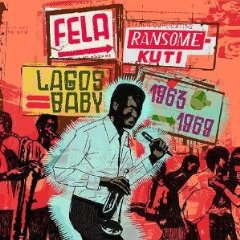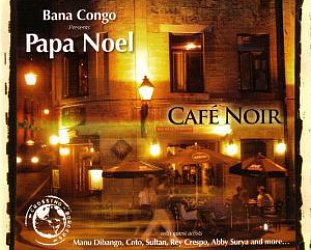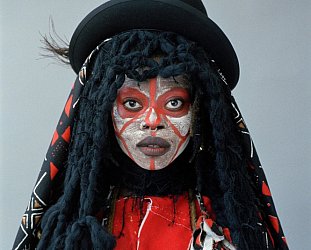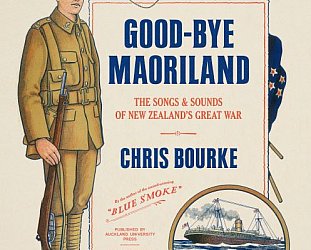Graham Reid | | 2 min read
Fela Ransome-Kuti: Se o tun de

Strange though it may seem today, I had to argue hard to write a Herald obituary for the great Afrobeat master Fela Anikulapo-Kuti when he died of Aids-related illnesses in 1997. Despite Peter Gabriel, Womad and the like bringing world music artists to wider attention people such as Fela were still on the margins of popular consciousness.
Yet Fela from Nigeria had been championed by British music magazines (especially NME and Melody Maker) in the early 80s -- and I’d written about him at the time in various places, then from the late 80s for the Herald when reissues of his 70s and 80s albums came through.
And there was always a lot to write about with Fela: the shorthand was that he married James Brown soul-funk with loping African rhythms and anti-government rhetoric, smoked a pound of dope a day, started his own independent republic in Lagos, was beaten by the police and imprisoned, and invented Afrobeat.
He wasn’t favoured by feminists (he said woman should know their place) and was sexually indiscriminate at the time of Aids. Musically however he was right on the money and a valuable primer in his incendiary sound is the 2004 Music is the Weapon double-disc/DVD compilation.
Fela didn’t arrive fully formed in the early 70s however, and this terrific double-disc compilation puts his exciting pre-Afrobeat music back in the context of the African high life and jazz of the time.
Fela was a middle-class boy and in the late 50s had been shipped off to London to study medicine. Within a few weeks he’d dropped that, enrolled at Trinity College studying trumpet and music theory, and was gigging with African and Caribbean jazz bands around London.
When he returned to Lagos five years later he was playing the uplifting highlife music which had drifted into Nigeria from Ghana. With its woozy, jazzy feel -- lots of slippery trumpet and sax, plenty of tickling and tricky guitars -- high life was the sound of Lagos when Fela was finding himself. His own orchestra looked to Dizzy Gillespie and Miles Davis as their models, but increasingly incorporate the soul stylings of James Brown and Otis Redding which were filtering into Lagos radio and nightclubs.
He adopted the name Afrobeat for his new-found funky soul-jazz, and when it wasn’t proving popular announced James Brown had covered one of his songs. From then on he became a canny self-promoter, started heavily on marijuana, dropped his “slave name” Ransome, and the songs became free-form horn and percussion-driven jams while Fela railed against the police, the military, colonialists and whomever else he despised.
Lagos Baby, sometimes poor quality recordings of vibrant music, uncovers a vital period of Afro-jazz coloured with high life and traces Fela’s path to Afrobeat. It isn’t the Fela that most will know, but couple this collection with the equally well annotated double-disc compilation of key artists of the period on High Life Time, From the 60s and Early 70s -- and the collection of his precursor Geraldo Pino -- and you have a schooling in a thrilling period of African music.
One question remains though: how do we account for the Fela album cover from the early 60s which has a tiki blowing a trumpet and holding a wahaika (club) above its head?
The unfathomable Fela again.





post a comment